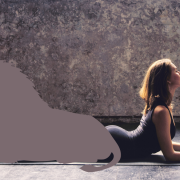
January 3, 2021 5 min read
Starting this Friday, businesses in the capital will no longer be able to deliver disposable plates, glasses and cutlery, among others. This is due to the entry into force of the second stage of the law that prohibits single-use plastics in Mexico City.
The first phase of this legislation was implemented on January 1, 2020, when the marketing, distribution and delivery of plastic bags to consumers was prohibited.
This year, the law is extended to other disposable plastic and Styrofoam products:
- Dishes
- Glasses
- Tapas
- Straws
- Forks, spoons and knives
- Mixing sticks
- Food trays
- Coffee capsules
- Balloons and balloon rods
- Cotton swabs
- Tampon applicators, made entirely or partially of plastics
- Products that contain intentionally added microplastics (for example, facial and body exfoliation creams, sunscreens, shower gels, toothpaste, soaps, and other personal hygiene products).
Garbage bags (for hygiene reasons, until there are compostables) and all plastic used in the field of health and medicine were left out of the prohibition.
I share
As of today, January 1, 2021, disposable plastic products, so harmful to our environment, are no longer used in Mexico City.
We take care of the planet, we take care of #OurHouse .
– Claudia Sheinbaum (@Claudiashein) January 1, 2021
What about ‘take out’ food and drinks?
The most concerned about the reforms to the Solid Waste Law of the CDMX, are the merchants. Many sellers, especially those of prepared foods, will have to look for greener alternatives to deliver their products, beyond plastic and Styrofoam.
The ban on plastic bags led a good part of the capital to use cloth bags to shop and carry their own containers when buying food and drinks. Reinforcing this habit would be the best option for customers and merchants, but it is not always possible to carry your ‘tuppers’.
According to the legislation, the capital government will only allow the sale, consumption and distribution of single-use products if they are made with compostable materials. That is, they are capable of biodegradation at least 90%, in a period of six months, if they are subjected to an environment rich in oxygen or in contact with organic materials.
For many, the most feasible would be to switch to cardboard plates, glasses and trays, or to wrap food in paper. There are also those that are biodegradable because they are made from natural fibers such as corn starch, bamboo or avocado pit, among others. Another possibility is to rescue the custom of serving food in edible packages, such as cones or waffle baskets for ice cream.
However, these alternatives (compostable plastic, paper and cardboard, or natural / edible materials) represent an extra expense for traders. They will decide if they absorb the cost, reducing their profits, or if they increase the price of their products, to compensate. Another option would be to charge for containers and utensils only to buyers who do not bring theirs.
Requirements to be able to use compostable plastics
Businesses must obtain a registration with the Ministry of the Environment (Sedema) to be able to market, distribute or deliver compostable plastics. To obtain this record, interested parties must present a management plan that indicates the process that the product will follow so that, once its useful life is over, its disposal in plants to compost or for recycling is ensured.
The Directorate General for Impact Assessment and Environmental Regulation (DGEIRA) will grant the interested party an alphanumeric record. All products that are registered with the DGEIRA will have a legend of ‘compostable’ or ‘compostable product’ and a logo of the certifying company and the standard complied with.
Fines
The Government of Mexico City plans to apply economic sanctions to those who continue to deliver single-use plastics. These range from 500 to 2,000 times the Unit of Measurement and Updating of the CDMX, that is, from 43,440 to 173,600 pesos , as established by the Solid Waste Law.
To answer questions about the ban on disposables, Sedema made the number 5278-9931, ext. 5470, as well as the email trashcero@sedema.cdmx.gob.mx.







